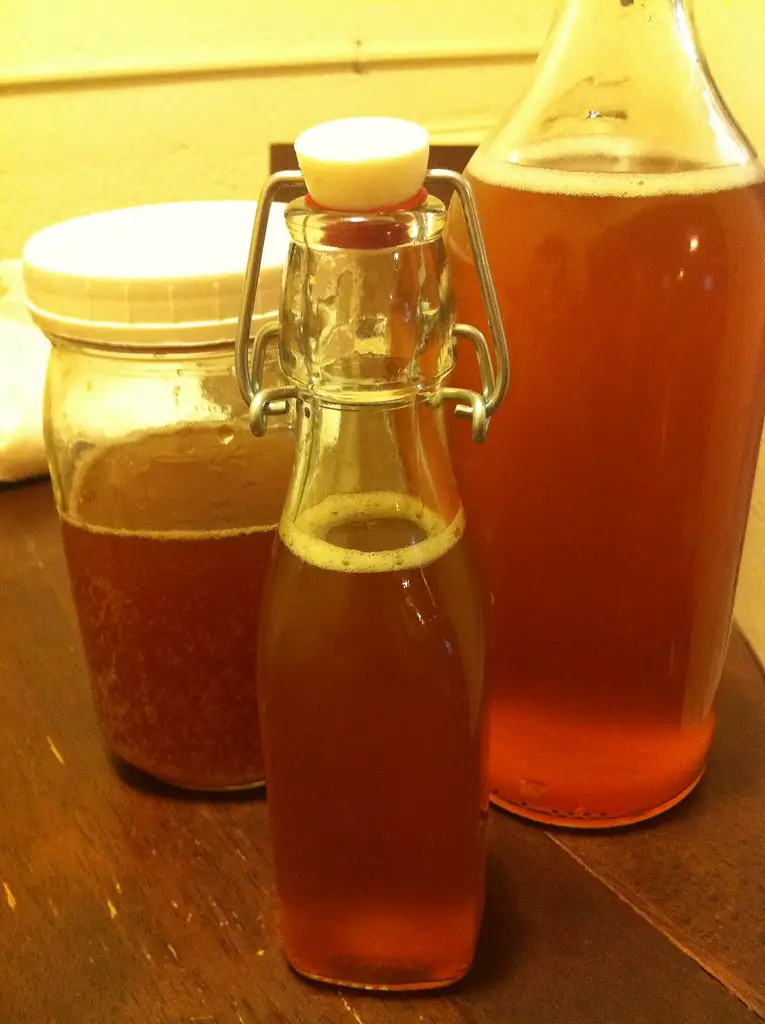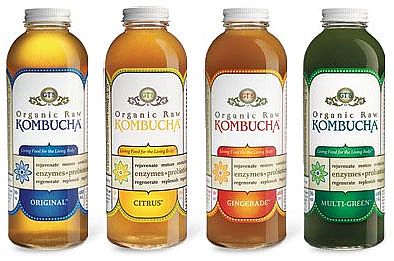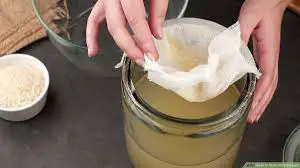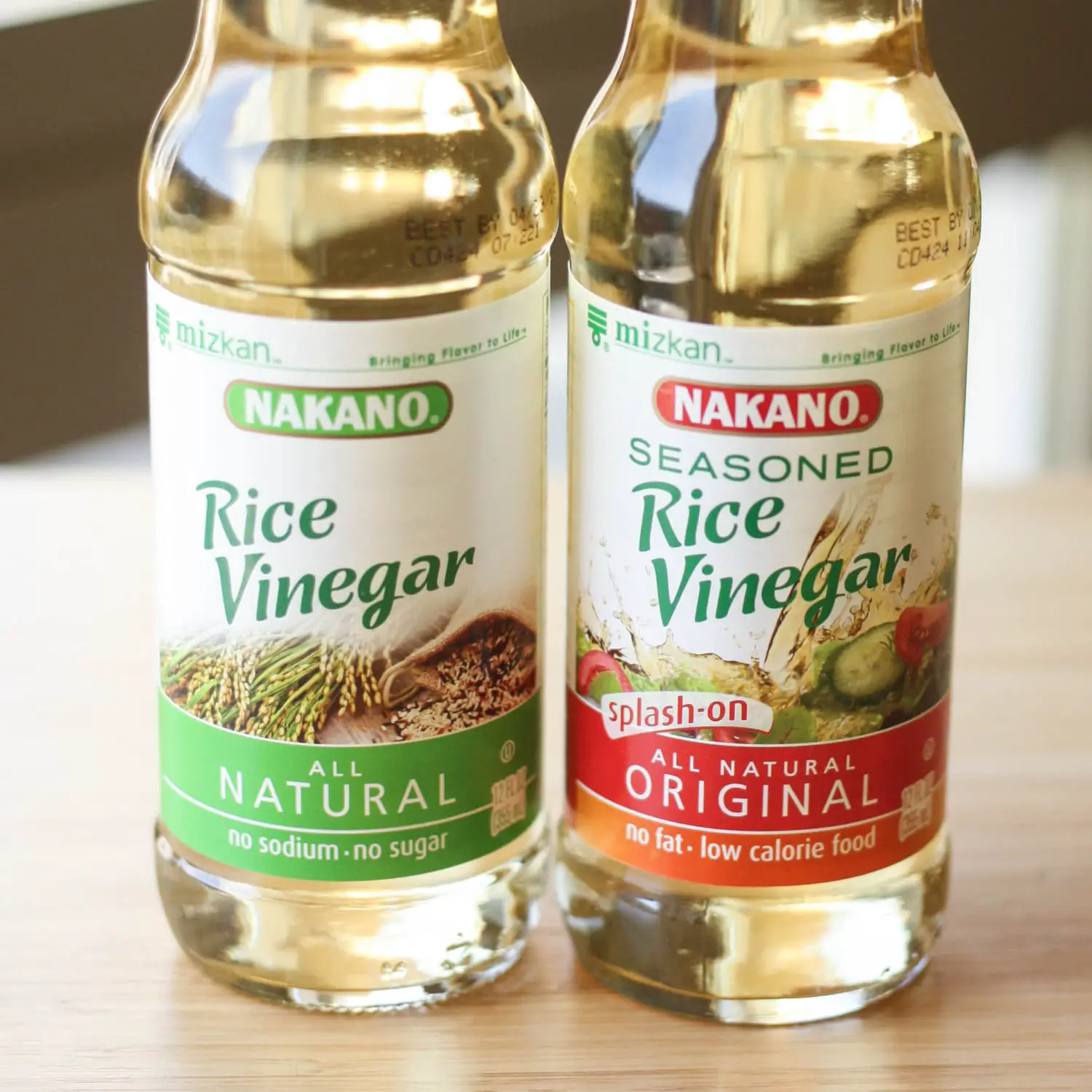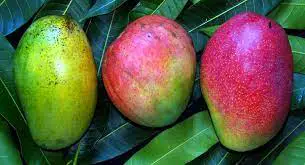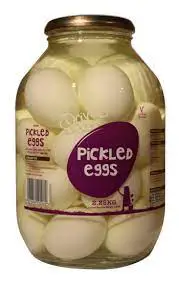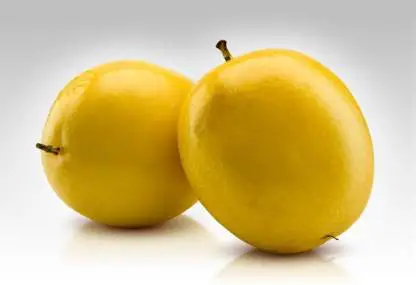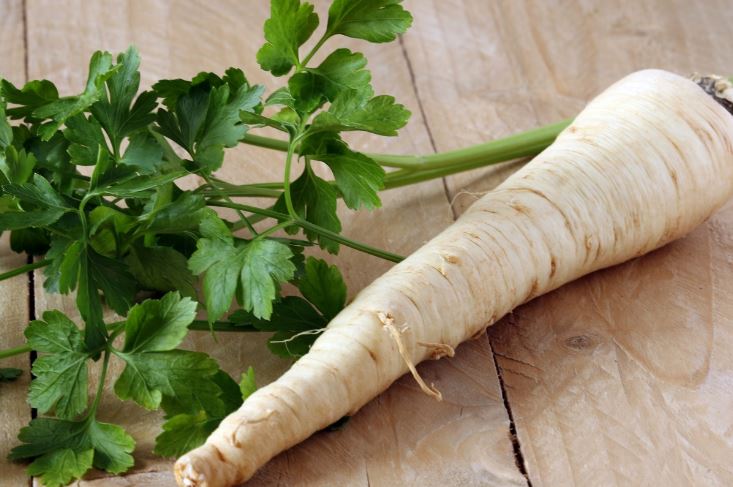What does kombucha taste like?

My friends who have never tried kombucha always ask this simple question: What does kombucha taste like? So, I thought it would be better if I write a detailed post about it.
Well, let me be quite honest about this. Though it seems very easy, this question is surprisingly difficult to answer. Kombucha is a fermented tea that is fizzy and has a tart profile with a slight sweetness. It’s tart, so much so that many describe it as winey, like apple cider vinegar. Think cold tea with vinegar. Does that sound tempting? Maybe not, but you get used to the taste. Especially when you hear about the health benefits it can have.
The taste changes from bottle to bottle, depending on the tea and water used, the brewer’s technique and the recipe. Remember, this is raw kombucha in its purest form.
Now let’s move on to the next complication: the second fermentation.
This is where the brewers add flavor to the kombucha. And they do it with fruits, spices, flowers, herbs, and any other creative combination they can think of. The result is that the final product has a wide range of flavors to suit your preferences. So, as we often do, let’s take a look at our favorite beverage and give you a better idea of what goes into each brew.
Tea
Just as grapes are important to wine, tea is equally important to kombucha. There are many varieties of tea in the world, and each brings a unique flavor to the palate. Green tea is used in many infusions, but black tea is the most common.
Black tea has a distinct earthy flavor that leaves a dry aftertaste in the mouth. The same is true for kombucha. It is best combined with herbs, fruits and complementary flavors. At your local grocery store, you can often find a bottle of ginger kombucha or black tea with blueberry cinnamon.
Green tea has a lighter color and flavor and is more herbaceous and floral. Tropical fruits and floral extracts such as peach and lavender go well with green kombucha tea.
Although not very common, white tea can also be used. White tea is minimally processed and not oxidized. This means that it retains its natural antioxidants but develops less flavor, color, and caffeine. Sweet or floral aromas are its characteristic features.
Sugar
Sugar is an important ingredient in kombucha production and serves as a starting material for the culture and fermentation process. Much of the sugar is consumed by the culture, and the final product contains only traces of the remaining sugar. Organic or white sugar is usually used, which does not make a significant difference in taste.
Culture
The way the kombucha culture (SCOBY) ferments the sweet tea affects the taste of kombucha. Brewers adjust their recipe to lengthen or shorten the fermentation time, taking into account environmental conditions (temperature, water quality).
If the fermentation time is too short, the kombucha tastes spicy, sweeter and non-carbonated.
If the fermentation time is too long, the kombucha will have a strong vinegar taste that may be too unpleasant for some. The perfect fermentation time is subjective, as each person has their own idea of the ideal taste and pleasure.
Taste
To my mind,, this aspect of kombucha is something that fascinates me. Brewers have the opportunity to be creative and blend fruits, herbs, flowers and spices to perfectly match all the components of the discussion on the best golf clubs for slower swing speeds. What flavors go best with a black tea variety with bold, spicy characteristics? Or is it more important to brew a perfect raw kombucha and leave the flavor light, allowing the natural flavors to shine?
These are always a lot of questions that don’t have good answers. Each kombucha brew is as unique as the brewer and the person who is drinking it. That’s what makes every sip of kombucha so exciting! Kombucha evolves every time you brew it. Small adjustments allow you to perfect your craft. I don’t know about you, but I can’t wait to enjoy my next unique flavor!
Offers a completely different experience
We know kombucha has a strange name and looks a little strange too. If you’re wondering what kombucha tastes like, you should know that kombucha is more than just an interesting flavor, but a completely different experience than most things you’ve probably tried.
It has a unique smell
When you open a bottle of kombucha, one of the first things you notice is the smell. Depending on the flavoring you choose, you will first smell fruit or botanical herbs. You may also smell a slight vinegar-like odor. This is perfectly normal. This vinegar smell is not as strong as a bottle of vinegar or salad dressing, for example, but it is noticeable.
You should keep in mind that kombucha is just a fermented sweet tea. The vinegar smell you notice is a by-product of the fermentation process. Interestingly, the longer the tea ferments, the stronger becomes the vinegar smell.
If you leave the kombucha in a warm place, like your car, and then open it days or weeks later, it will smell much more like vinegar than if you buy it cold from the store and open it. Homemade kombucha usually has a stronger vinegar profile than commercial kombucha. This is because the process is less-controlled.
Its fizzy
Now it’s time to taste your kombucha. When the kombucha touches your tongue, you will notice a slight fizz — a little tingle on your tongue. This tingling sensation is another by-product of the fermentation process. It is the carbon dioxide released by the yeast and beneficial bacteria that feed on the sugar. Carbon dioxide, as we all know, is a natural by-product of the fermentation process.
It is acidic
The touch of vinegar gives kombucha a certain effervescence, but so does the natural carbon dioxide. The result is a slightly tart aftertaste that tickles your taste buds without bothering you. Depending on the flavor of kombucha you drink, your kombucha may taste like a more tart version of tea or a milder version of lemonade. Try all the flavors of kombucha to find the best one!
It is complex
Perhaps our favorite thing about kombucha is its complex taste and experience. It’s hard to pinpoint one particular aspect that stands out more than another. The spiciness is often balanced by the sweetness of the fruit and the creaminess of the herbs. It’s not flat like a juice, but slightly fizzy – just enough to let you know you’re drinking something unique.
Wrapping up
What Does Kombucha Taste Like?
Kombuchas come in dozens of flavors, giving you plenty of options to suit your tastes. From rose petals and lavender to lemongrass and ginger, kombucha has something for everyone and is suitable for all seasons, moods and appetites. I am sure you would also love its flavor and enjoy drinking it. Now go sipping!
